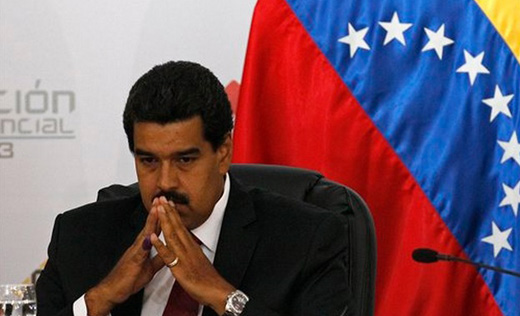
Venezuelan President Nicolas Maduro and his socialist administration are dealing with serious inflation, difficulties in importing vital goods, black market control of dollars, falling oil prices, and worsening economic recession. All these problems have causes and effects that are intertwined. And worse: Maduro’s political opposition and that of his predecessor, President Hugo Chavez, have sapped the economy through malicious manipulation.
However, the Maduro government had some good news on April 11 as Venezuela’s Supreme Court declared the opposition-controlled National Assembly’s March 29 amnesty law to be unconstitutional. The law would have exonerated dozens of people convicted of violent agitation, sabotage, and rebellion since 1999, the year President Chavez took office.
The Court held that the law denied justice sought by victims and would have granted impunity for people already pardoned for criminal, anti-government actions who went on to commit new crimes, or might have done so. The prominent opposition figure Leopoldo López, now serving a 13-year sentence, would have gone free under the law. He was convicted of organizing anti-Maduro protests in 2014 that led to 43 deaths. López was among those who resumed such activities after having received a pardon from President Chavez in December 2007 for their role in the failed anti-government military coup of 2002.
Yet the Court’s decision hardly eases the extreme vulnerability of President Maduro’s government. He won Venezuela’s presidency in April 2013 by a thin margin, in sharp contrast to the string of more than 15 sweeping electoral victories of all kinds marking the tenure of President Chavez, who died March 5, 2013. Organizers of violent nationwide protests in 2014 advertised Maduro’s ouster as their purpose. In December, 2015, right wing opposition forces gained a majority in National Assembly elections for the first time since 1998.
An epidemic of murders of leftists and police officers tasked with containing violent right-wing demonstrations descended on Venezuela in March. Victims included a mayor, a legislator, and two police officers.
Commemorations on April 11-12 of the failed 2002 coup against President Chavez took note of U.S. support for the plotters. Since then, the U.S. government has delivered millions of dollars to real or potential opponents of Venezuela’s socialist governments.
In that same vein, President Obama March 10 extended an executive order of the previous year declaring that Venezuela threatens the national security of the United States. The presidential action provides the U.S. government with a legal cover for imposing legal sanctions against the oil-rich country.
Venezuela’s government under Chavez worked toward fulfilling the dream of regional unity espoused by Cuban national hero José Martí and South American liberator Simón Bolívar. U. S. governments have viewed the project with suspicion. The U.S. justification for the recent executive order, however, is the claim that the Caracas government tolerates violence and persecutes political opponents.
The Washington Post editorial board opined April 13 that “Venezuela is desperately in need of political intervention by its neighbors.” The Post lamented that, “the region’s leaders are distracted” – perhaps by Brazil for example. And rather than attending to business, “the Obama administration is preoccupied with its outreach to Cuba.”
Right wing forces in Spain led by former President José María Aznar and current President Mariano Rajoy, have consistently joined the United States in threatening the left-leaning Chavez and Maduro governments. “Change won’t be complete in Latin America without liberty in Venezuela,” declared Rajoy on March 29.
Venezuela, of course, has friends. Both Latin American and Caribbean multinational alliances and social movements worldwide denounced the U.S. declarations against Venezuela in 2015 and again this year. “We can’t conceive of one of the CELAC members being a threat to the most powerful country in the world. We consider [the declaration] to be interference,” declared the Community of Latin American and Caribbean Nations (CELAC).
The “Network of Intellectuals, Artists and Social Movements in the Defense of Humanity” meeting in Caracas April 11 expressed support for the Maduro government, while observing that, the region is experiencing an “offensive conservative re-colonization by the United States and local oligarchies.”
On April 19, 2016 (and the same day the year before), supporters of Venezuela’s right to set its own course will mark a “Global Day of Action in Solidarity with Venezuela.” As a prelude to the Global Day, the Communist Party of Venezuela, with support from the World Peace Council’s Executive Committee, issued a declaration. It expressed “full and active solidarity to the Venezuelan People, the government of the constitutional President Nicolas Maduro Moros,” and demanded “the repeal of the new, infamous and interventionist decree signed by President Barack Hussein Obama.”
So far, social organizations, political networks, and political parties from throughout the world – including more than 40 communist parties, the Communist Party USA among them – have endorsed the declaration. The issue date for the declaration commemorates Venezuela’s fight to achieve independence from Spanish colonial domination, which began on another April 19, in 1810.
Photo: Nicolas Maduro. | AP












Comments